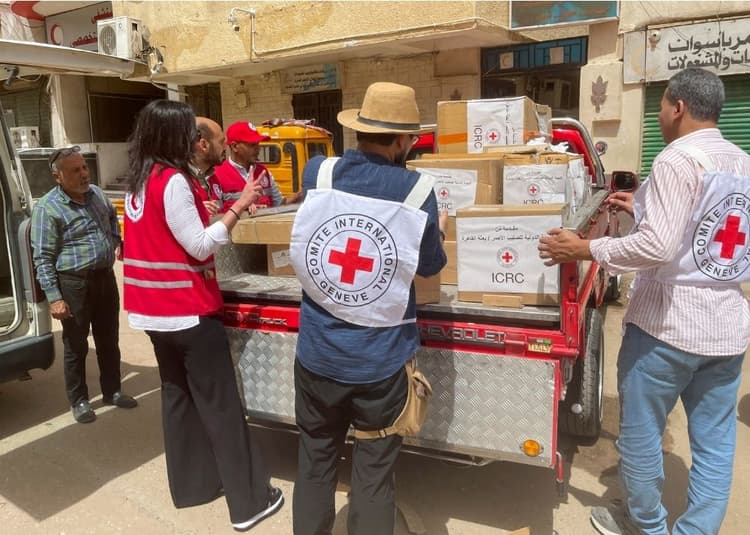ICRC is an international humanitarian organization with a specific mandate and mission focused on protecting and assisting victims of armed conflict and other situations of violence. The ICRC's mandate is primarily defined by the four Geneva Conventions of 1949 and their Additional Protocols, which set out the rules and principles of international humanitarian law.
- Protecting and Assisting Victims
- Promoting and Ensuring Compliance with International Humanitarian Law
- Acting as a Neutral and Independent Intermediary
- Providing Humanitarian Assistance
- Addressing the Humanitarian Consequences of Conflict
The ICRC's mandate is based on principles of humanity, impartiality, neutrality, and independence. It is one of the key organizations responsible for ensuring that the laws and principles of IHL are respected and upheld during times of armed conflict and other situations of violence.
ICRC values diversity for several reasons:
- Humanitarian values: The ICRC is guided by the core values of humanism, neutrality, impartiality, and independence. These principles urge the organisation to aid and protect those afflicted by armed conflicts and other forms of violence without prejudice. Embracing variety is consistent with the notion of humanity, which emphasises the inherent dignity and value of every human being, regardless of background or identity.
- Operational Effectiveness: The ICRC's personnel diversity helps the organisation react more effectively to the different demands of persons affected by conflicts. It enables the International Committee of the Red Cross (ICRC) to better understand local cultures, languages, and special issues in the places where it operates. As a result, humanitarian efforts can be more efficient and culturally relevant.
- Local Engagement: The ICRC operates in many regions of the world, typically in communities with diverse ethnic, cultural, and religious origins. A diverse staff may help organisations interact with local communities and build trust with the people they serve. It can also assist in bridging communication and cultural divides
- Inclusion: Embracing diversity demonstrates the ICRC's commitment to inclusion and fair opportunity. It fosters a working atmosphere in which people with diverse experiences and opinions are welcomed and encouraged to contribute to the organization's purpose. This inclusiveness extends to both employees and those they serve.
- Innovation: A diverse staff brings a wide range of experiences, ideas, and viewpoints to the table. This variety has the potential to lead to more creative and inventive solutions to complicated humanitarian issues. Diverse perspectives can assist the ICRC in adapting and improving its ways to better serve people in need.
- Worldwide Reach: Given the worldwide nature of the ICRC's work, having a diversified staff can also assist the organisation negotiate the difficulties of international diplomacy, partnerships, and collaborations with many stakeholders.
- Ethical Commitment: As a humanitarian organisation, the ICRC maintains the principle of nondiscrimination and advocates respect for human rights. Value for diversity is congruent with these ethical principles and guarantees that the organisation practises what it teaches.
The ICRC operates in the Asia-Pacific region and needs staff, volunteers, and support from nationals of countries in that region. The specific needs and opportunities for APAC nationals can vary depending on the organization's activities and the current humanitarian situation in the region. These needs can include positions such as field workers, interpreters, administrative staff, and other roles that support the ICRC's mission.
Engage Directly with ICRC Recruiters
If you are interested in working with the ICRC or supporting their efforts in the Asia-Pacific region and globally join this month's Impactpool Virtual Career Fair for Asia and Pacific nationals, taking place on 30 November 2023.
Join the ICRC Talent Pool
The ICRC’s global talent pool is a database of diverse professionals who are interested in working for the ICRC. Whether you are looking for a new role or curious about our future opportunities, our team will help you explore how you could work with us.
